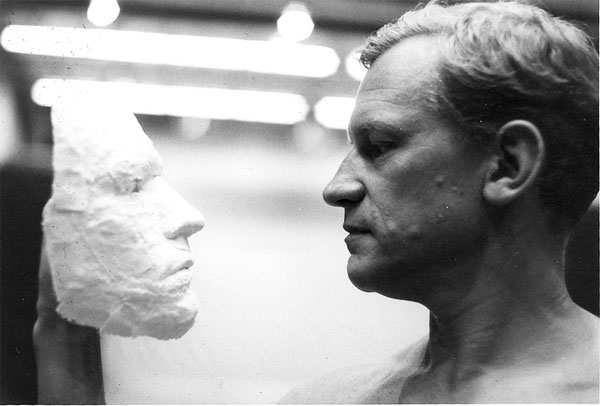
BY GERALD BUSBY | Carl Laanes was the most aesthetically demanding man I ever knew. He was also the most consistent supporter of young artists. With his creation of the Empire Diner, Carl consolidated these qualities and transformed the western reaches of Chelsea into a chic New York destination.
I met Carl in the early ’70s at a party in the Chelsea loft of painter Mark Beard. Charles Ludlam, founder of the Ridiculous Theatrical Company, and Virgil Thomson, composer and music critic, were there. Off to one side, Carl, in animated conversation with a young artist, suddenly shouted, “well, if you don’t think Picasso was one of the greatest painters who ever lived, I can’t talk to you.”
Carl was head of the graphics department at the Museum of Modern Art, and he had strong opinions about art, music and food, which he expressed with irrepressible, sometimes strident, vigor. He came to dinner at my apartment in the Chelsea Hotel, and I played him some of my music. He liked the food and the music, and hired me to cook at Ruskay’s, his first restaurant, located at Columbus Ave. and W. 75th St. The same night I cooked, Michael Parloff, a Juilliard grad student, played solo flute music for the diners. Carl was taking flute lessons with Michael. I was so inspired by Michael’s virtuosity that I wrote a suite for solo flute called “Noumena.” That’s the piece I sent to Robert Altman to consider me as composer for his new film “3 Women.” I got the job, and Michael went on to become principal flutist in the Metropolitan Opera Orchestra, a position he held for 30 years.
In 1975, Carl and his partners, Richard Ruskay and Jack Doenias, found a run-down diner on the northeast corner of 10th Ave. and W. 22nd St. Carl created the Empire Diner. Everything about the design and function of that enterprise, from the waiters’ clothes to the lighting of the room, was subject to Carl’s fastidious direction. He insisted that the overhead lights be exactly the intensity of the candles on the black glass tables. The effect was elegant and alluring. At the shiny black-lacquered Kawai upright piano right next to the restroom, Harry Connick Jr. played his first gig in New York for $25 and dinner.
The Spike and the Eagle’s Nest were just a block away, and gay men in leather and Levi 501s were enticed by the glamour of the Empire Diner. There were episodes of confrontation incited by unknowing straight men who wandered in at 3 a.m. looking for eggs over easy and found instead men in leather and chains eating endive with Roquefort dressing.
One might say that Carl’s creation on 10th Ave. triggered the gentrification of Chelsea, especially the art galleries that began to open nearby. Photographers and filmmakers were drawn to the chic Art Deco diner in the middle of a shabby New York neighborhood. The famous movie actor from Hitchcock’s film “Psycho,” Tony Perkins, lived around the corner on W. 22nd St., and I remember him calling me out of the kitchen one busy Sunday brunch. He thanked me for poaching the eggs softly and not putting too much lemon juice in the hollandaise.
Besides bringing young artists of all kinds together at the Empire Diner, Carl brought all kinds of gay and straight people together in an exciting and happy atmosphere. It was an only-in-New-York theatrical scene. Everyone there was a performer.
Cooking there and playing that Kawai next to the restroom got me started as a composer. I’m sure there are many other artists in New York who feel equally grateful for Carl Laanes’ support. He died Sept. 12, 2016, right after a trip to Italy. He’d taken a young painter to see Venice for the first time.


































